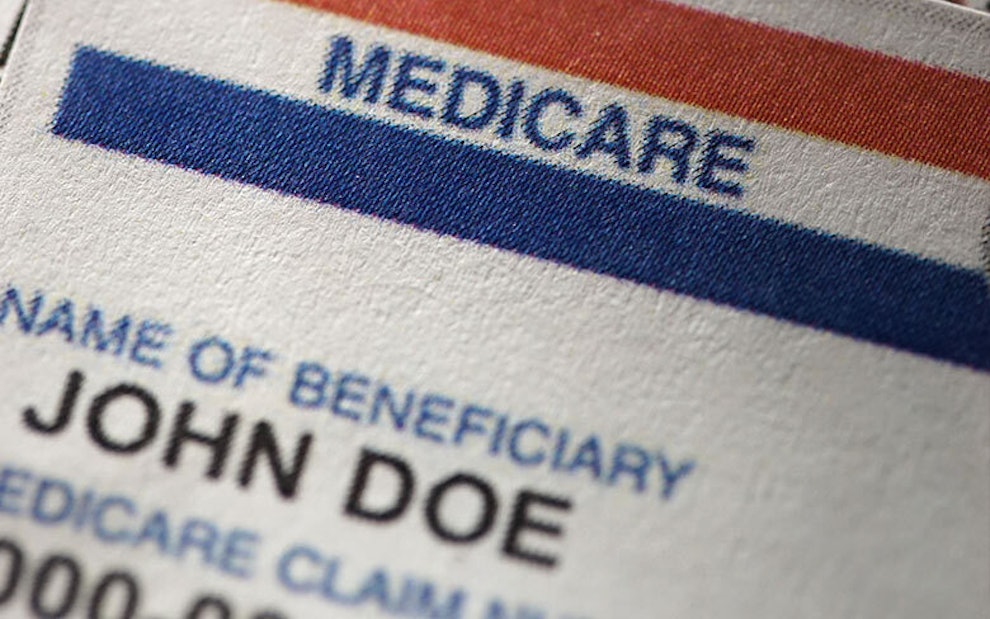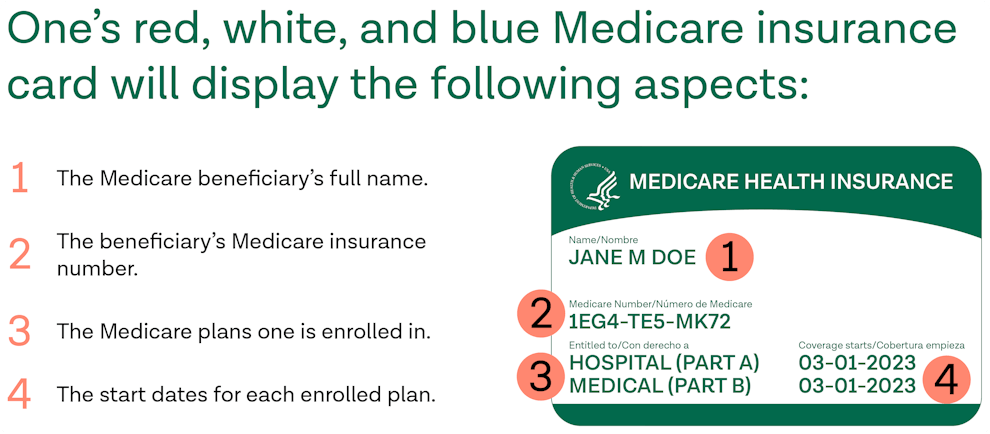Medicare Eligibility Age: Who Can Enroll & How
Article at a glance
Before one can discover if they are eligible, they must first understand what Medicare is and how it functions.
Medicare eligibility depends on a variety of factors.
Understanding how to apply for Medicare or knowing what steps come after initial enrollment is crucial.
Social Security and Medicare are often considered to have the same eligibility ages; however, they often differ.

Medicare can be tricky to comprehend, especially regarding who is eligible, why they are eligible, and how they can sign up. However, eligibility and enrollment can be easy once all the facts are known.
This article will explain everything there is to know about the Medicare eligibility age.
What is Medicare?
Medicare is health insurance coverage funded by the federal government for those who are 65 or older. Medicare also includes certain younger persons with disabilities as well as those with End-Stage Renal Disease (ESRD).
Standard Medicare is broken down into three parts known as Medicare Part A, Medicare Part B, and Medicare Part D. Part A is considered ‘hospital insurance’ and often is premium-free. Part B is regarded as “medical insurance” and requires a monthly premium. Lastly, Part D is prescription drug coverage and must be added to a Medicare plan. Part D coverage is optional, however, if patients choose not to register when they’re eligible, there will be a penalty fee later on.
Medicare also offers what is called “Part C” coverage, otherwise known as Medicare Advantage plans. Medicare Advantage plans, or MA plans, typically bundle Part A, Part B, and Part D into one health insurance plan. Many Medicare Advantage plans also have additional health benefits such as dental, hearing, or vision care.
Note: To learn more about deciding between an Original Medicare or Medicare Advantage plan, visit this resource.
Medicare Eligibility Age: Who is Eligible for Medicare?
Those 65 & Older
Adults 65 and older are eligible for Medicare; however, their eligibility can be further broken down into two categories: premium-free coverage and paid coverage. Those who are 65 and older, worked for at least ten years, and paid Medicare taxes, are eligible for premium-free Part A coverage.
Those who are 65 and older, are citizens of the United States, but did not pay Medicare taxes while working are still able to enroll in Medicare but they must purchase Part A coverage.
All Medicare recipients are eligible for Part B coverage, but it requires a premium. This premium for Part B is often taken as a deduction from a recipient’s retirement benefits from their Social Security Administration, Railroad Retirement, or Civil Service Retirement check. If a recipient receives none of these payments, Medicare will send a Part B premium bill every three months.
Those Under 65
In particular circumstances, those under the age of 65 are eligible for full Medicare benefits. These circumstances include those already receiving a disability pension from the Railroad Retirement Board, those with Lou Gehrig’s disease (ALS), and those with permanent kidney failure (ESRD) who regularly receive dialysis treatments.
In cases where a patient has been entitled to Social Security disability benefits or Railroad Retirement Board disability benefits for 24 months, they are eligible to receive premium-free Part A coverage. For those with ALS, Medicare benefits begin in tandem with their first month’s disability benefits.
Spouses
Non-working individuals are also eligible for Medicare if their spouse (of at least ten continuous years) has worked for ten years and paid Medicare taxes. In addition, divorcees that were married for at least ten years and are currently single may also qualify for Medicare under their ex-spouse’s work record.

Working Individuals
If a patient continues to work past the age of 65, they are still able to enroll in Medicare. However, if their employer provides private health insurance, more options are available to them, and the process may become complicated. If a patient finds themself in this scenario, it’s essential to speak with an insurance agent for guidance.
Note: Visit this source to speak with someone about a Medicare insurance plan.
How to Apply
Step One
The majority of patients may automatically be enrolled in Medicare three months prior to the month they turn 65. However, other patients in select circumstances (those who haven’t worked and paid Medicare taxes for ten years, those under the age of 65, etc.) may have to apply for Medicare coverage.
Note: To learn more about enrollment periods, visit this source. To apply for Medicare or to learn about the application process, visit this source.
Step Two
Once patients have been enrolled, either automatically or through an application, they should receive a “Welcome to Medicare” package along with their Medicare insurance card. This package will take the patient through all there is to know about Medicare and explain the various coverage options available to them.
To read the “Welcome to Medicare” package for those automatically enrolled, visit this source. To read the “Welcome to Medicare” package for those who applied, visit this source.
To learn more about the Medicare insurance card and see a sample of what one looks like, visit this source.
Step Three
After a patient has carefully reviewed the details in their welcome packet, it’s time for them to decide which coverage they desire. As stated prior, most patients are eligible for premium-free Part A coverage. However, patients must apply for part B and Part D, and both require a premium.
Medicare Advantage plans, the Medicaid dual eligibles program, and MedSupp (Medigap) programs are also options that provide additional coverage for patients. To learn more about these programs, visit this source.

How Social Security Impacts Medicare
It’s essential to recognize that one may be eligible to collect Social Security benefits at a different time from when their Medicare eligibility begins. This means to emphasize that just because a patient retires early or begins collecting Social Security does not mean they are eligible for Medicare benefits. The only case where collecting Social Security incites Medicare eligibility is for those younger than 65 that are receiving a disability pension, have ALS, or those with ESRD.
For those who aren’t eligible to collect Social Security retirement benefits until after age 65, their Medicare Part B premium will be affected. Medicare Part B is usually deducted from a patient’s Social Security, Railroad Retirement, or Civil Service Retirement check. However, if they aren’t due to collect their check until after the age of 65, Medicare will send a Part B premium bill every three months.
Note: To learn more about the Social Security eligibility age, visit this source.
Medicare Enrollment Periods
Enrollment Periods for Original Medicare
Initial Enrollment Period (IEP): The enrollment period for a standard Medicare plan lasts seven months: three months before your 65th birthday, the month you turn 65, and the three months after the month of your 65th birthday. If you are already claiming Social Security, Medicare enrollment should be automatic. However, if you are not claiming Social Security, you may have to sign up for Medicare. It’s important to note that all patients must sign up for Part B if they want it. If a patient is interested in Part B coverage, it’s best to sign up for Part B during their initial enrollment period to avoid extra penalty fees. To sign up for a Medicare insurance plan or learn more about enrollment, visit this source.
General Enrollment Period (GEP): If a patient misses their initial enrollment period, Medicare also offers patients a general enrollment period from January 1st to March 31st. Coverage for this enrollment period begins on July 1st.
Note: To learn more about enrollment periods, including information on special enrollment, visit this source.
Medicare Advantage Enrollment Periods
Initial Enrollment Period: When a patient’s IEP is enacted for Original Medicare, they can also sign up for Medicare Part C.
General Enrollment Period: General enrollment for Original Medicare is January 1st — March 31st; meanwhile, general enrollment for MA is April 1st — June 31st. The general enrollment period should be used to register new patients for Medicare plans.
Fall Open Enrollment Period: From October 15th through December 7th, patients have the option to change their Medicare coverage plan. During this time, they can switch to a different MA plan (HMO, PPO, SNP, etc.) or switch from Original Medicare to an MA plan. The fall enrollment period should only be used to make changes to Medicare plans.
Sources
https://www.hhs.gov/answers/medicare-and-medicaid/who-is-elibible-for-medicare/index.html
https://www.aarp.org/health/medicare-insurance/info-04–2011/medicare-eligibility.html
https://www.investopedia.com/articles/personal-finance/123014/what-age-medicare-elegibility.asp
https://www.medicare.gov/sign-up-change-plans/get-started-with-medicare
https://www.medicare.gov/sites/default/files/2021–02/12116%201–21-21%20508.pdf
https://www.medicare.gov/forms-help-resources/your-medicare-card
Become a patient
Experience the Oak Street Health difference, and see what it’s like to be treated by a care team who are experts at caring for older adults.


